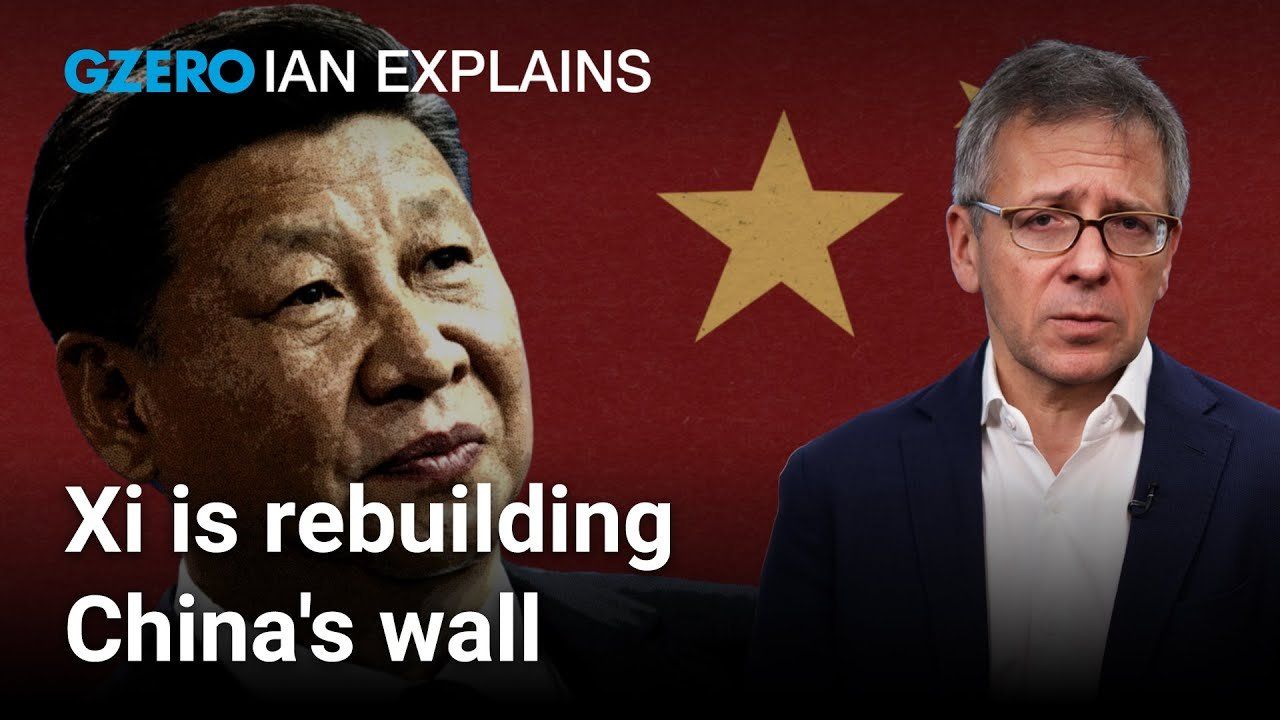Ian Explains
Ian Explains: Xi Jinping's nationalist agenda is rebuilding walls around China

Ian Explains: Xi Jinping's nationalist agenda is rebuilding walls around China | GZERO World

On Ian Explains, Ian Bremmer breaks down how Xi Jinping is turning China inwards at a time when it can’t afford to close itself off. Since assuming the presidency in 2012, Xi has consolidated power within the Communist Party to become China’s most dominant ruler since Chairman Mao Zedong. Under Xi’s watch, China has rolled back democratic rights in Hong Kong, implemented crackdowns on the powerful tech, finance, and real estate sectors, restricted English in schools, and even expanded the definition of espionage so broadly that basic interactions with foreigners are viewed as suspect.
President Xi’s nationalist vision has become so dominant that it's written into the Constitution and official history of the People’s Republic. But will that vision make China hostile to the very ideas that fueled its economic transformation in the first place?
China was largely absent from the core conversations at the 2026 Munich Security Conference. That, says Ian Bremmer, is telling.
At the 2026 Munich Security Conference, Brad Smith announces the launch of the Trusted Tech Alliance, a coalition of global technology leaders, including Microsoft, committing to secure cross-border tech flows, ethical governance, and stronger data protections.
Tune in today at 12pm ET/6pm CET for the live premiere of our Global Stage from the 2026 Munich Security Conference, where our panel of experts takes aim at the latest global security challenges. NY Times National Security Correspondent David Sanger moderates the discussion with Benedetta Berti, Secretary General, NATO Parliamentary Assembly; Ian Bremmer, President & Co-founder, Eurasia Group & GZERO Media; Dr. Wolfgang Dierker, Global Head of Government Affairs, SAP; and Brad Smith, Vice Chair & President, Microsoft.